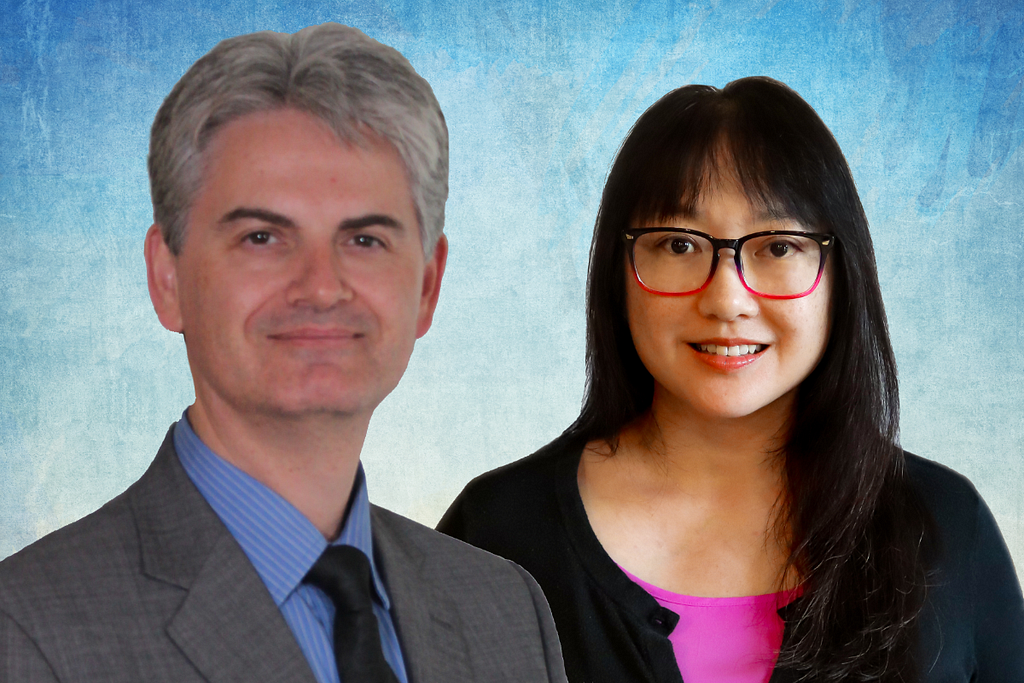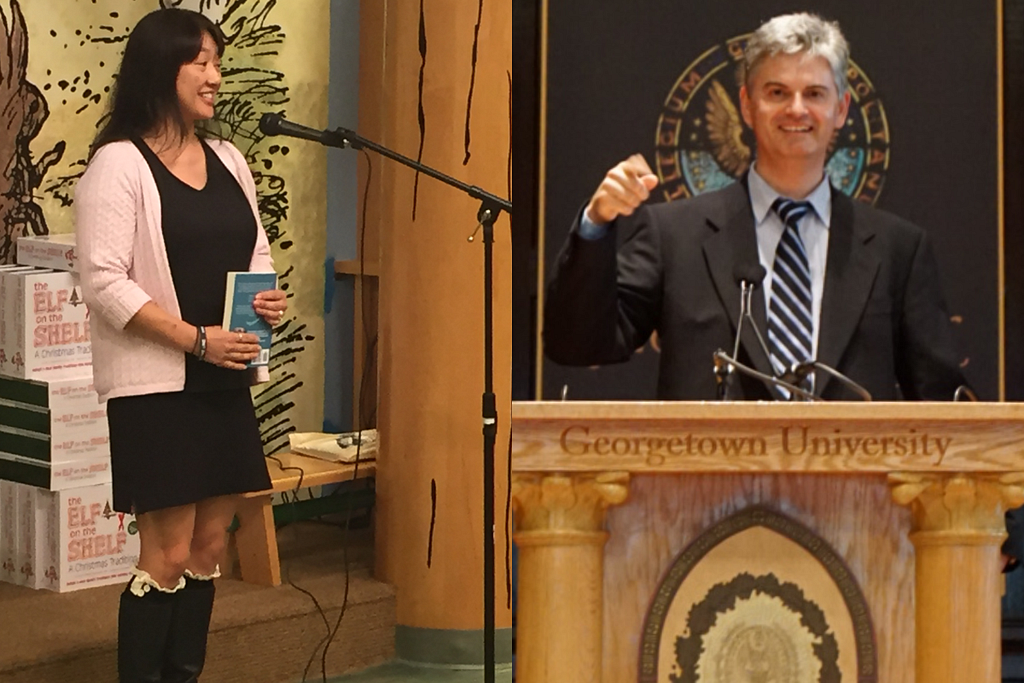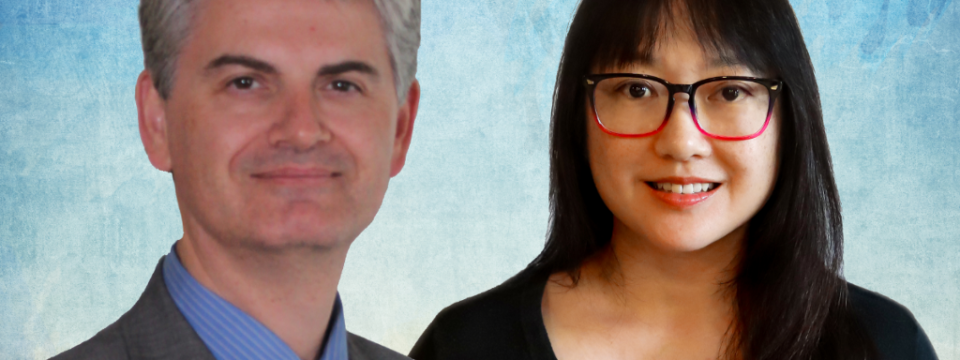
Simon: The only lesson that I really wish I had learned from the start is that we alone create artificial boundaries that stifle our progress. I used to think that I wasn’t smart enough to apply to the Harvard Business School, thus I limited myself from striving to be admitted there. When I visited the school and attended an information session some years ago, I was astonished to discover that I would have been a great fit there, and my background and experience would have contributed to the cohort, if I had tried to get in. My lesson was that I alone limited myself.
Marisa: There’s really only one thing I wish someone had told me when I first started, and that is: Why not you? There were so many times in my life where I stopped doing something because I didn’t think I could do something, so I didn’t even try, and once I thought, why not me, I changed my whole approach to how I was living life.
As part of my series about “authors who are making an important social impact”, I had the pleasure of interviewing Simon and Marisa Cleveland.
The Clevelands are the co-authors of the leadership book, There Is No Box, and are always looking for the best way to live life. Simon Cleveland, PhD, EdD lectures at Johns Hopkins University, where he was honored with the Excellent in Teaching Award from Zanvyl Krieger School of Arts and Sciences, and Georgetown University, where he was honored with the Tropaia Award for Outstanding Faculty for his work with the Master of Professional Studies in Project Management. He has more than 20 years of experience in the fields of corporate and government leadership, higher education administration, project management, information systems, and technology management. With more than two decades in the education and publishing industries, Marisa Cleveland, EdD is adamant about supporting efforts toward the betterment of the human condition. She is the executive director for The Seymour Agency, Hodges University Board of Trustees vice-chair, and a New York Times and USA Today bestselling author. Gulfshore Business and D’Latinos magazines honored Cleveland with the Arts and Culture 2015 FACE Award, and in 2014, Gulfshore Business selected her as a Forty Under Forty honoree.
Thank you so much for joining us in this interview series! Before we dive into the main focus of our interview, our readers would love to “get to know you” a bit better. Can you tell us a bit about your childhood backstory?
Simon: I spent my earlier years in Eastern Europe, arriving in the United States in my teens. Growing up as the oldest boy in my family, I faced certain expectations and responsibilities that shaped my current worldview. The culture of the country I grew up in shaped my initial perceptions of how leaders should behave.
Marisa: I was born in South Korea and adopted by white, Catholic New Englanders, arriving in New Hampshire when I was three months old. I was a gymnast and cheerleader in elementary and secondary school, and I joined the dance team in college, where I met Simon.
When you were younger, was there a book that you read that inspired you to take action or changed your life? Can you share a story about that?
Simon: When I was ten years old, I read a biographical account of the brief life and tragic death of a 13-year-old partisan boy who fought against the fascist occupation of Bulgaria and heroically died during a battle against the occupiers. This book changed me, because it showed me how one could live an exemplary life as a leader at a very young age.
Marisa: So many books from my childhood impacted the way I view the world, but The Giving Tree helped me define my philosophy on the way I live life now. Of course, the easy lesson would be unconditional love. I have welcomed people into my home, fed them, and offered them support when they needed it, even though they are not my friend or even someone I could ever depend upon, but they were going through a rough time, and I was able to offer pieces of myself in an attempt to comfort them. But that’s not the real lesson I took from The Giving Tree. The lesson I learned was to always feel like I have enough. This has helped me never take more than I need to the detriment of others.
It has been said that our mistakes can be our greatest teachers. Can you share a story about the funniest mistake you made when you were first starting? Can you tell us what lesson you learned from that?
Simon: Coming to the US early in my life, I quickly realized the importance of proper communication. At the time, I didn’t know certain words, for example I didn’t know the word for fries in the fast food restaurants was ‘French fries.’ So, when I was ordering them I would ask for chips (the English word for fries) and would always end up with Cheetos or Nachos. It took some time to figure out what the actual word for fries was. This mistake taught me earn on in order to be an effective communicators, one needs to learn the fundamental rules and words in order to succeed with their goals.
Marisa: My mistakes aren’t really funny haha, but more of an eye-roll-did-I-really-do-that-again kind of mistake. The lessons learned aren’t always learned the first time, and it’s taken me a long time to be okay with having to learn the same lesson more than once. The first time a stranger asked me what my book was about, I said, “I don’t know.” Even though I knew. Even though I had practiced my one-liner. The second time it happened, when I froze and said, “I don’t know,” I also laughed and then told them I did know, I just couldn’t think of it right then. What lesson did I learn from that? That there are people who will be interested in what I write, and that even if I’m not prepared, it’s okay, because a genuine and casual conversation about something I love is better than a canned response could ever be.
Can you describe how you aim to make a significant social impact with your book?
Simon: Leaders are capable of improving the human condition. Great leaders are capable of generating a joy and love for life among those who get to work with them. The way leaders feel radiates into other aspects of their lives and influences the lives of those around them. There’s a section in the book that addresses community leadership and the concept that we are responsible for enhancing our community and finding solutions to the challenges our community faces. Hopefully, while reading There Is No Box, the emerging and existing leaders will consider ways to take actions that lead to positive changes in their community.
Marisa: There Is No Box challenges the reader to expand their worldview and to question their ingrained beliefs. Social impact starts with social awareness, and the core message found in There Is No Box is that you are the CEO of your life, and just like professional CEOs, you have people around you who are impacted by you and your actions. Once readers are aware of how they influence others, they can begin to increase their cultural agility and practice compassionate communication.
Can you share with us the most interesting story that you shared in your book?
Simon: One story that changed the way I viewed the playing field happened right after my first lecture for MBA students at Georgetown University’s McDonough School of Business. The course was on trouble projects, but more than that, it was a course on preparing the students to be better leaders for when they joined and helmed a leadership team. The course did more than show them ways in which they would work better in teams and how to communicate with shareholders about correcting a troubled project. It showed them how leadership is not a competency; leadership is a lifestyle. I entered the lecture all with one frame of mind but exited with a much deeper understanding of privilege. I’d mistakenly categorized all those MBA students as privileged — starting the course on the same page. But that wasn’t the case, and after almost a decade of teaching undergraduate and graduate students, I’m convinced of two facts: education can level any playing field, and when you take charge of your own development as the CEO of your life, you actively seek knowledge to help you level any playing field.
Marisa: I think the most interesting story I shared in There Is No Box is the time when about half a dozen people first reached out to me and told me they wanted my life. They asked me how they could get to where I was, sought my advice for their own career path, and shared how my experiences influenced them. I influenced them — these men and women older and younger than me, white, and not outwardly marginalized. Me. An abandoned, adopted South Korean immigrant who never thought someone else would want to be me. And I fully realize that’s not what they specifically meant, but the fact that people were saying they basically wanted to be me influenced me so deeply says a lot about me and my positionality. This realization also showed me that I needed to reframe the way I viewed myself.
What was the “aha moment” or series of events that made you decide to bring your message to the greater world? Can you share a story about that?
Simon: Marisa and I met in college, and very early on we realized that we didn’t quite fit into the default standard of anything, and so we had to create our own place. We’ve said it repeatedly that we appreciate those who made space for us at their table, but we will always cherish those who joined us at ours — once we realized we could build our own table. And once we learned how to build our table, we wanted to help others build their own tables. That was my “aha moment.” The moment I knew I wanted to help others build their tables rather than just sit at mine. Essentially, it was the moment when I realized the positive impact creating effective leaders has on the world. We could have thought the world doesn’t need another leadership book, but we believe the world needs this leadership book.
Marisa: At a low point in my life, Simon said to me, “Life isn’t something you have to do. Life is something you get to do.” From that moment, I realized that I didn’t have to stay in a job that didn’t add value to my day. But what else did I want to do in this one short and unpredictable existence on Earth? In my opinion, Simon’s outlook on life makes him one of the greatest philosophers of our time. He’s right. Life is something we get to do, and there’s so much we could do. So, instead of settling for what I thought I should do, instead of doubting myself when I wonder if I could do something that might seem out of reach, I think why not? This was the “aha moment” that led to us deciding to bring our message to the greater world. Why not share what we’ve learned? A while ago I tweeted, “When you reach the point in your life where you’re living the dream, I hope you remember to appreciate the path you traveled to get there. Then, if you’re able, help someone else on their path.” Our ambition in life is to help others find and travel their paths.

Without sharing specific names, can you tell us a story about a particular individual who was impacted or helped by your cause?
We’ve been humbled by the support and validation we’ve received in sharing our message that there is no box — there is no one way to get to where you want to go, because you are the CEO of your life. One person shared that because of us, they reframed how they viewed others and how they interacted with their family and friends. We helped them expand their worldview and think about things differently. This meant the most to us because it validated the heart of the book. The purpose of the book isn’t to give someone the right answers; it’s about being willing to start those conversations where we critically think and share our ideas, and it’s about generating experiences that help us interact with each other through compassionate communication.
Are there three things the community/society/politicians can do to help you address the root of the problem you are trying to solve?
Yes! No matter where they are on their leadership journey, they can (1) promote themselves to the CEO of their lives. Then, they can (2) cultivate their relatability in the five ways mentioned in There Is No Box. After which, they can (3) create more relatable leaders.
How do you define “Leadership”? Can you explain what you mean or give an example?
Over the years, we’ve encountered so many brilliant definitions of leadership from others who have come before us, so here’s a summation of those definitions and what leadership has come to mean to us: leadership is the ability to intentionally influence. Leading is intentionally influencing — yourself and others. We’ve witnessed times when individuals didn’t mean to influence others or even want to, so their influence was not intentional. This isn’t leadership; it’s just setting a bad example. Therefore, leaders must have the intention to influence, and leadership is the ability to intentionally influence yourself and others.
What are your “5 things I wish someone told me when I first started” and why. Please share a story or example for each.
Simon: The only lesson that I really wish I had learned from the start is that we alone create artificial boundaries that stifle our progress. I used to think that I wasn’t smart enough to apply to the Harvard Business School, thus I limited myself from striving to be admitted there. When I visited the school and attended an information session some years ago, I was astonished to discover that I would have been a great fit there, and my background and experience would have contributed to the cohort, if I had tried to get in. My lesson was that I alone limited myself.
Marisa: There’s really only one thing I wish someone had told me when I first started, and that is: Why not you? There were so many times in my life where I stopped doing something because I didn’t think I could do something, so I didn’t even try, and once I thought, why not me, I changed my whole approach to how I was living life.
Can you please give us your favorite “Life Lesson Quote”? Can you share how that was relevant to you in your life?
Simon: “You have exactly one life in which to do everything you’ll ever do. Act accordingly.” — Colin Wright
Marisa: “People will forget what you said, people will forget what you did, but people will never forget how you made them feel.” — Maya Angelou
I have two favorite quotes, but this one impacted me earliest in my career. Having been on the receiving end of criticism and ridicule, this quote resonated with me in a way that shaped my conviction to remove negative people from my life. Several people, including Anais Nin, have been quoted as saying something along the lines that we see the world as we are, not as it is, and if we are negative, the world will seem negative. Once I deleted people who made me feel bad, my world brightened. Relatedly, I make an effort to build others up, to make them feel relevant. This quote reminds me of the importance of supporting others along their journey and helping them have a positive experience.
Is there a person in the world, or in the US with whom you would like to have a private breakfast or lunch with, and why? He or she might just see this, especially if we tag them. 🙂
Simon: Alexander von Humboldt. He was a geographer, naturalist, explorer, philosopher and scientist. Lunch would not be possible with him now since he passed away in 1859. He was one of the first scientists who introduced concepts of ecology, which produced the early ideas about environmentalism and the human-induced climate change.
Marisa: Reese Witherspoon. Her focus on sharing female-driven stories captures my heart in a way that reminds me to continue to learn and grow in my space while uplifting the voices of others. She has spotlighted the impact of community and collaboration, and from my limited view of her career, she has demonstrated that there is no box, and we don’t have to settle for the default standard that the world wants us to be.
How can our readers further follow your work online?
Instagram: @thereisnobox
Twitter: @marisacleveland and @clevelandsimon
LinkedIn: Simon Cleveland and Marisa Cleveland
Website: simerisalliance.com
This was very meaningful, thank you so much. We wish you only continued success on your great work!
Social Impact Authors: How & Why Authors Simon and Marisa Cleveland Are Helping To Change Our World was originally published in Authority Magazine on Medium, where people are continuing the conversation by highlighting and responding to this story.
